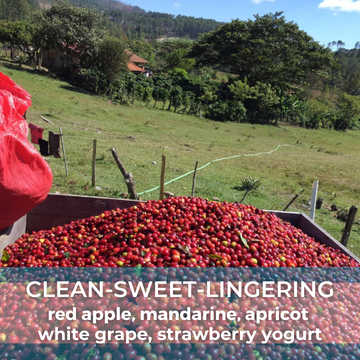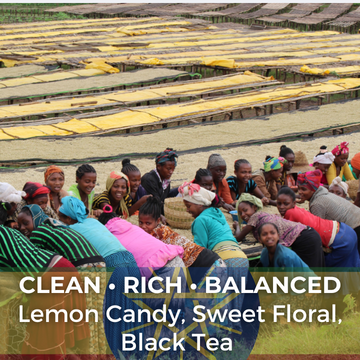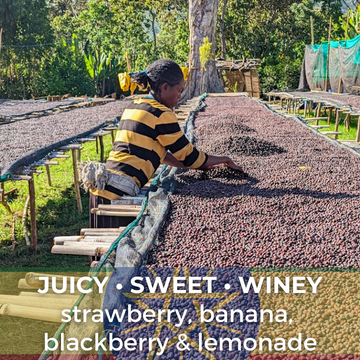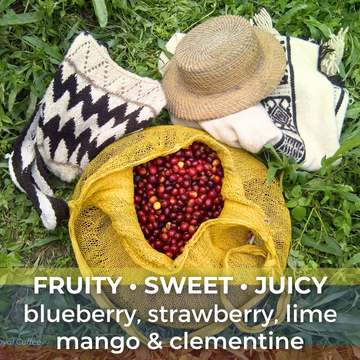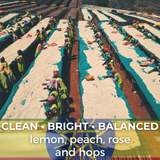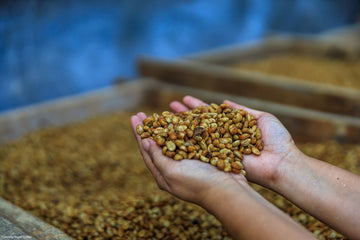Sold Out
Ethiopia Yirgacheffe Gedeb Wuri Grade Zero Natural
Grade zero?! You read that right, not grade one, but grade zero. We also have the same coffee in washed right now! This coffee is an experimental microlot that's the result of a collaborative effort between producers, exporters and importers to make an entirely defect free coffee. That classification doesn't even exist! It's a higher grade than one and has zero defects, thus, grade zero. The result is a clean cup that roasts like a dream. Notes of Blackberry, nectarine, mango, vanilla and lime.
GRADE ZERO?! For those who don't know, Ethiopia has changed their grading system a bit over the years. Currently, all Ethiopian coffees whether washed or natural are graded 1 through 4 in order to designate their average number of defects as well as how closely sized they are. Grade one has the least number of defects and the beans are sized all nearly identically. Grade four has the most number of defects and the beans are quite mixed in size. Grade zero doesn't even exist...until now.
But does that make for a good cup of coffee? Well in this case it certainly does. In comparison to most other natural processed Yirgacheffes, it’s surprisingly crisp as well as clean. It’s a bit less berry heavy than some we’ve had this season, but it makes up for it with juicy nectarine and mango along with just a hint of vanilla. One last reason to love this coffee: it’s significantly easier to roast than most naturals you’ll encounter thanks to the meticulous milling.
Reminder! This coffee is raw, you must roast it before brewing
Arrival Date: July 1st, 2022 . US Arrival: January, 2022. Vacuum sealed in Ecotact
Acidity & Brightness: Slightly bright and juicy sweet
Balance & Finish: Fairly complex with a fairly clean finish
Body & Texture: Full bodied, creamy
Flavors: Blackberry, nectarine, mango, vanilla and lime.
Grade: Grade 0 (zero defects), grown at 2050-2100 masl
Processing: Full natural and sun-dried on raised beds, and milled to zero defects
Grower: 1567 producers organized around Wuri processing station
Region: Worka-Sakaro kebele, Gedeb District, Gedeo Zone, Southern Nations, Nationalities, and Peoples' Region
Varieties: Regional landraces and heirloom cultivars
Recommended Roast Range: City to Full City (Light to medium)
Start at City (light) or just in to a rolling first crack and go a bit darker as desired. Natural processed coffees, especially those from Ethiopia, almost always present their best on the lighter end of the roasting spectrum. We find it best not to go any darker than Full City (Medium, after the end of first crack) and most folks will prefer a City + or at the tail end of first crack. Light roasts will have more brightness and fruity flavor while medium roasts will accentuate more rounded sweetness and body. This coffee roasts quite evenly for a natural processed coffee due to the meticulous milling of Grade Zero.
Royal Coffee - "The district of Gedeb takes up the south-eastern corner of Ethiopia’s Gedeo Zone—a narrow section of plateau dense with savvy farmers whose coffee is known as “Yirgacheffe”, after the zone’s most famous district. Gedeb, however, is a terroir, history, and community all its own that merits unique designation in our eyes. Processors across Gedeb would argue (and we would agree) that their coffee profiles are not exactly Yirgacheffe, but something of their own. Cup profiles, in many cases produced closer to Guji than the rest of Yirgacheffe, are often the most explosive we see from anywhere in Ethiopia. Naturals tend to have perfume-like volatiles, and fully washed lots are often sparklingly clean and fruit candy-like in structure. Worka-Sakaro is a municipality located in northeast Gedeb close to the Guji border. Currently there are two private washing stations in Worka-Sakaro, one of which is Wuri, whose name in the Gedeo language translates to “high altitude”. The station was originally constructed in 2012 and today is owned by Ranger Industry & Trading PLC. This “Grade Zero” selection comes from a collaborative effort between Royal and Ranger Industry & Trading to design a near-perfect rendition of a top washed Gedeb. The experimental microlot begins as a carefully-selected full natural batch, sorted for exact consistency and laid out in single layers to dry in the sun on raised beds. Once dried, the coffee is treated to extra sorting steps at the dry mill, including multiple additional passes in the color sorter and a longer, slower hand-removal of imperfections. This particular lot was milled to a precise screen distribution as well: all coffee is 15-16 screen only, in an effort to help roast uniformity and flavor precision. The idea is to present a better-than-Grade 1 result, hence the grade “0”.
